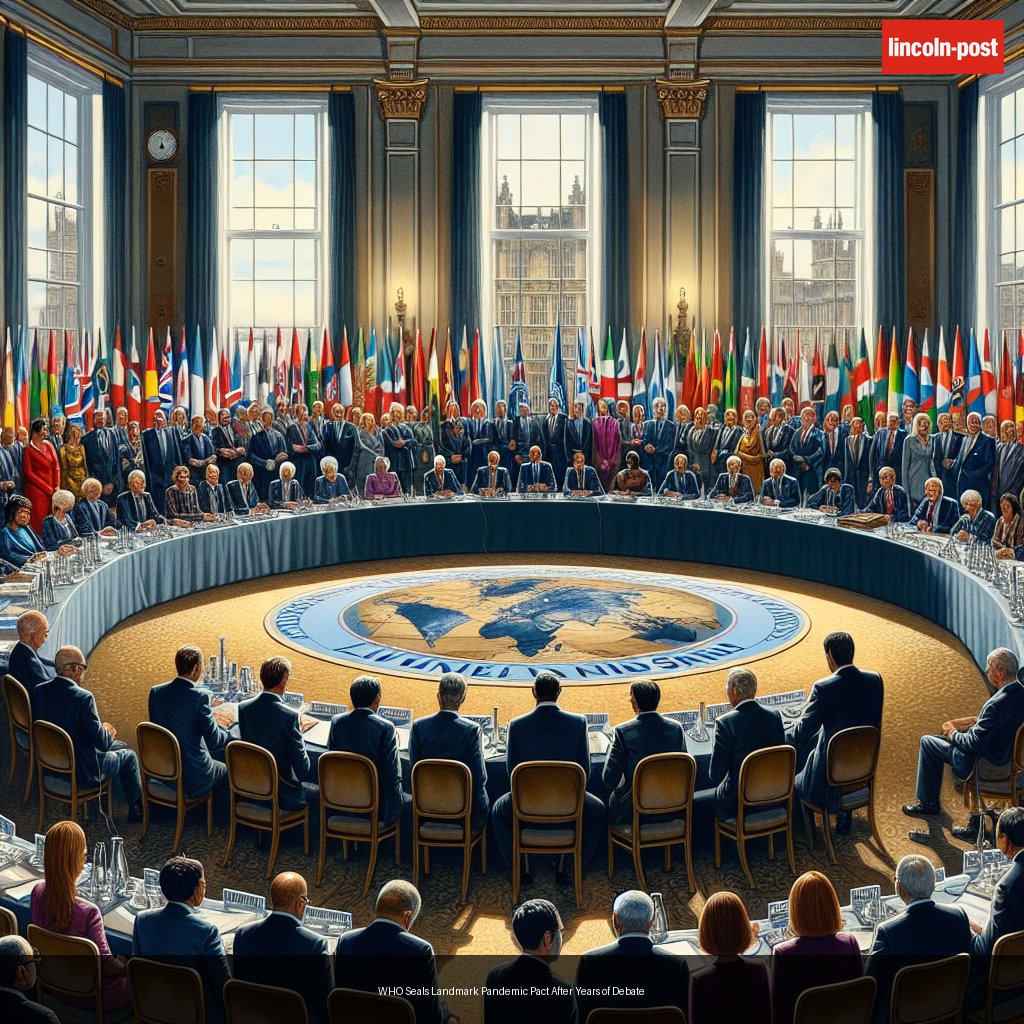After three years of intense discussions, the World Health Organization (WHO) has emphatically embraced a pandemic pact. This resolution followed a compelled vote triggered by Slovakia’s Prime Minister, Robert Fico, who has previously shown scepticism towards vaccines and halted Covid-19 jabs procurement based on contentious claims. In the late hours of Monday, 124 countries endorsed the agreement with no opposition, even though 11 countries, including Poland, Israel and Italy, chose not to engage in the vote. The pact was subsequently ratified officially in a plenary session on Tuesday morning.
The WHO Director-General, Dr Tedros Adhanom Ghebreyesus, celebrated the treaty as a victory for international teamwork and pragmatism. He stated, ‘Governments globally are strengthening resilience at both national and international levels against pandemic threats.’
The pact is intended to fortify preparedness and responses for future pandemics. However, it will only be implemented after an annex on sharing pathogens is negotiated, a process which could take up to two years. There are ongoing concerns that the pact’s initial ambition has been diluted, with the majority of its language demonstrating intention rather than definitive action.
Significantly, the agreement stipulates that pharmaceutical companies involved should allocate a minimum of 20% of their pandemic-response resources to the WHO, of which at least 10% must be freely given to aid poorer nations. Clause 9.5 of the pact encourages governments to ensure that entities that benefit from publicly funded research share their technology during health crises.
This treaty is regarded as an essential progression in global cooperation, bringing member countries together during a period of stressed multilateralism. Contrary to the US’s prior decision under ex-President Donald Trump to withdraw from the WHO, this pact has reinforced unity amongst its continuing members, sparking considerable delegations from countries such as China. Industry experts see this agreement as a crucial structure for future pandemic readiness, with substantial work still to be done, especially regarding pathogen access and benefit sharing.
Please note: The story has been restructured using the original reporting by The Telegraph.









